Last Updated on June 20, 2024 by Michelle
Why I plant sunflowers in the garden
One sunflower’s giant bloom is covered in hundreds of tiny flowers. Flowers that attract and feed pollinators all day long. All summer long. What’s not to love about that? Without pollinators, my garden would never be able to provide our family with all the goodness it yields; so yes, flowers in my garden are important to me. And sunflowers are one of the bees’ favorites.
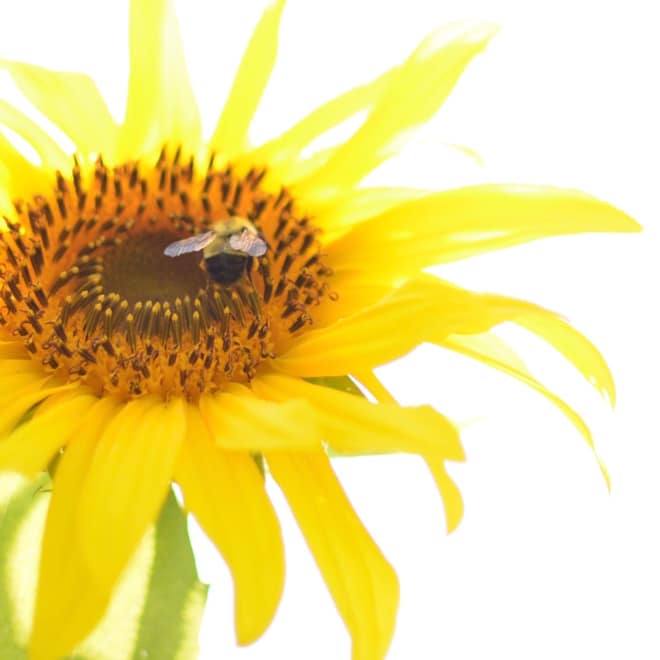
Not only do the gorgeous yellow blooms stand tall above my garden, as beacons to the pollinators, but they droop low and heavy with seeds every fall. Seeds that make a yummy snack. Not many flowers can boast that… beauty, pollination, and a winter snack.
But, if you’re considering adding sunflowers to your gardens, there is a little secret about them that you really need to know…
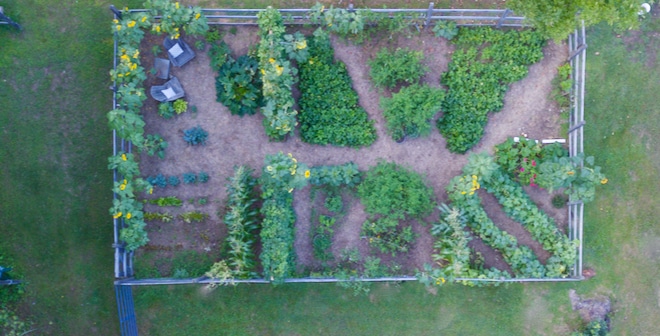
Are sunflowers good or bad for the garden?
The answer is “both.” Sunflowers are good AND bad for the garden.
The good part?
Well, for starters, they’re iconically gorgeous; come in a huge range of heights, colors, and styles; and they make me smile every stinking time I see one.
They also–more importantly–attract a wide array of pollinators to your gardens, and they provide a delicious snack for the birds or for YOU, if you harvest the seeds in the fall.
The bad part?
Sunflowers give off specific phenolic compounds that, crazy enough, are toxic to some plants.
These compounds impede the growth of some plants around them, or even kill some plant varieties.
Are sunflowers high maintenance?
After reading that “bad part” stuff above, the fact that sunflowers are very LOW maintenance might not convince you to forgive them for their evil ways.
But don’t write off the gorgeous sunflower as a good fit for your vegetable garden, rest assured many plants do okay in companion planting with them and the fact that sunflowers are not high maintenance is a nice bonus.
So, before you write off the sunflower as the villain in the garden, keep in mind that the sunflower uses this protective measure of releasing phenolic compounds to survive. By stunting the grown of their neighbors, but not their own seedlings, the sunflower (which can only reproduce by seeds) gets a head start every spring, making sure it can come back the following year. Without this protective measure, we may not have these garden sentinels at all.
AND bonus—I love this!—the sunflower is so good at what it does that scientists are using sunflower extracts to try to create effective, organic herbicides.
Fascinating.
So read on to find out particular plants that are impacted the worst by these phenolic compounds and simply avoid planting sunflowers near them.
What should you never plant near sunflowers?
The two plants that are the most impacted–meaning their growth is completely stunted if sunflowers are growing nearby–are potatoes and green beans.
I know many folks think sunflowers would make a nice stake for climbing beans to grow up, but resist the temptation. Unless, of course, you don’t mind stunted vines, with no beans.
Do sunflowers prevent other plants from growing?
Yes, sunflowers drastically stunt the growth of some garden plants.
But sunflowers shouldn’t take all the heat. It turns out there are other plants that do this weird toxic “thing” as well. Plants that dramatically prevent other plants from growing are known as “allelopathic plants.” (source)
Other allelopathic plants include elderberry, forsythia, sumac, goldenrod, and rhododendron.
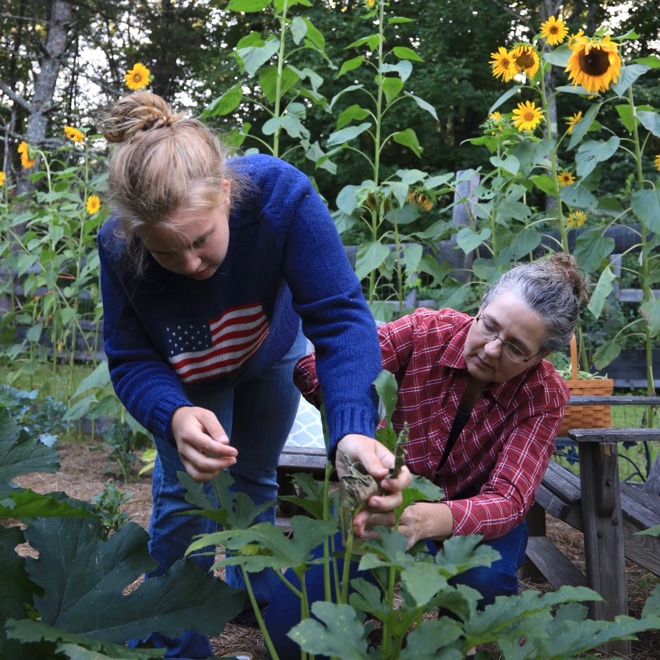
Why I rotate where I plant sunflowers in the garden
Crazy enough, if sunflowers are grown year after year in the same spot, even their own seedlings will eventually start to suffer themselves from these toxins that the adult flowers naturally release into the garden soil.
So if you do decide to plant sunflowers in your garden, make sure you keep them far from potatoes or beans, watch other plant varieties for unusual stunted growth and avoid planting sunflowers near them in future years, and be sure to rotate the location of the sunflowers in your garden.
Also, one last thing to keep in mind…
Sunflowers will add phosphorus to your garden
After getting back a very disheartening soil test this spring, I’m very conscientious of how each plant i grow and every act I do in the garden impacts the overall health of my soil.
Depending on your soil, adding phosphorus may be good or bad. If you don’t know which scenario is true, or if you haven’t tested your garden soil in recent years (or ever… if you’re like me) I can’t recommend enough that you grab this soil test kit (or 3).
My garden was on a downward spiral that I truly never would have recovered from without the detailed results I got from this soil test kit. It’s super easy, very affordable, and the results are not only very thorough, but very speedy as well.
Order one or two soil kits today and start improving your soil next week. Use code SOULYRESTED right here for 15% off your entire purchase, any time.
Once you know, based on your soil test, if phosphorus is good or bad for your garden plot, know that some plants–including sunflowers, barley, and poppies–place a lot of phosphorus in the soil.
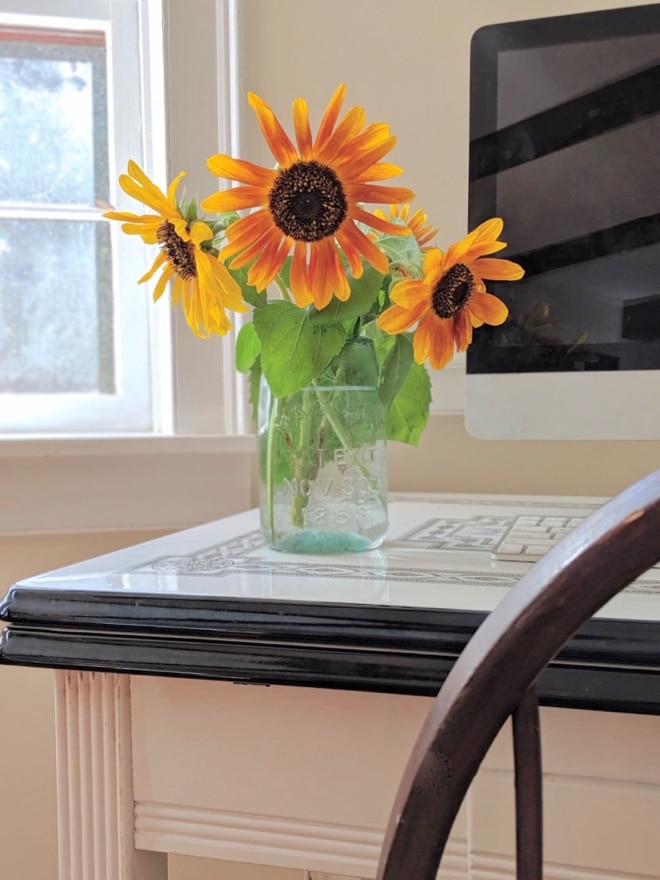
What plants do well planted near sunflowers in the garden?
Some plants–flowers and veggies–have built up a resistance to the sunflower’s toxic attempts. These are ones I’ve found listed on various gardening sites, but certainly many other plants will do fine.
I’ve had these veggies and flowers near sunflowers and never noticed any stunted growth (but this is just my own observation, not based on other evidence, so I’m not including these in the full list below): popcorn, corn, tomatoes, cucumbers, hollyhock, and zinnea.
But now that you know this dirty little secret of the stately king of the flowers, just keep an eye on other plants nearby and notice if there are some you should avoid planting near sunflowers in future years.
And please comment if you know of more that should be added to this list of resistant plants.
- Black-eyed Susan
- Carnations
- Clematis
- Coneflower
- Coral bells
- Coreopsis
- Dahlia
- Daylily
- Iris
- Lemon balm
- Lupines
- Mint
- Periwinkle
- Roses
- Thyme
Other articles you’ll love:
8 Gardening Tips & Tricks from the Pros
How to make your own organic bug spray for your garden
6 Herbs I Grow for my Chickens
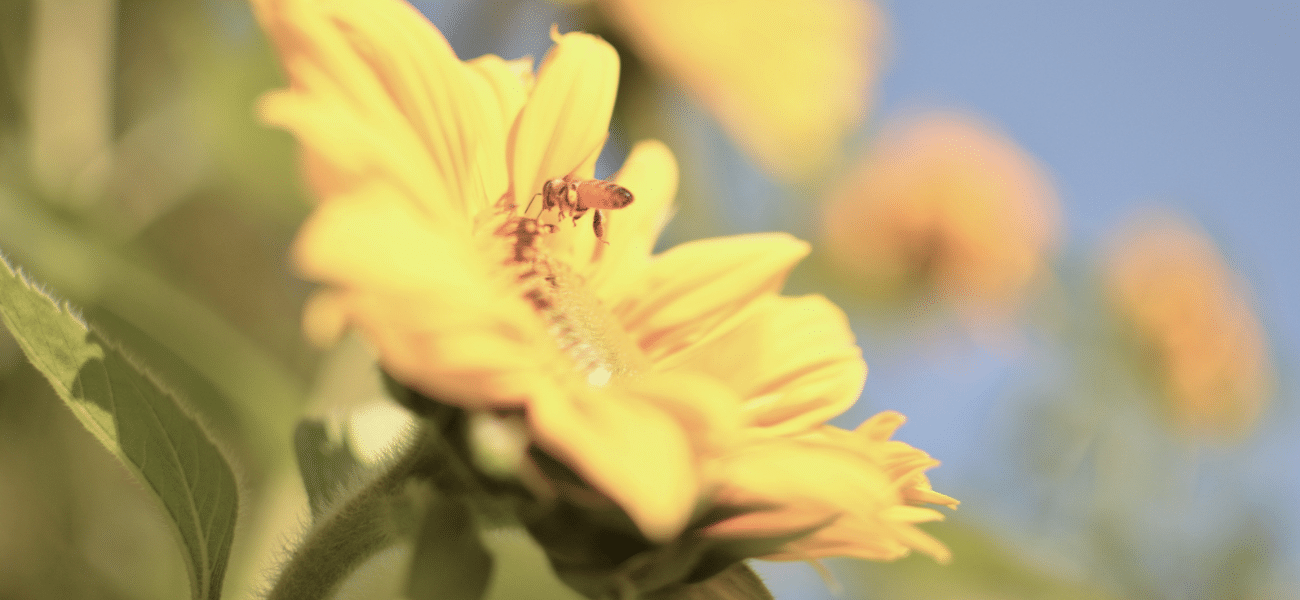
“Indeed, the Lord will give what is good, and our land will yield its produce.” Psalm 85:12
Pin this for later!
Click on the image below to pin this post.
Find out why SoulyRested was considered to be one of the Top 20 Must-Read Homesteading Blogs of 2018 and then one of the Top Homesteading Blogs of 2021 as well.
Glance at my Resource Page if you’d like to get a glimpse of all the supplies I use and recommend for everything from gardening, to homeschooling, to chicken care, to nature journaling, to maple syrup making.
I’d love to connect!
To find me in some other neck of the woods, just click any (or every!) icon below:

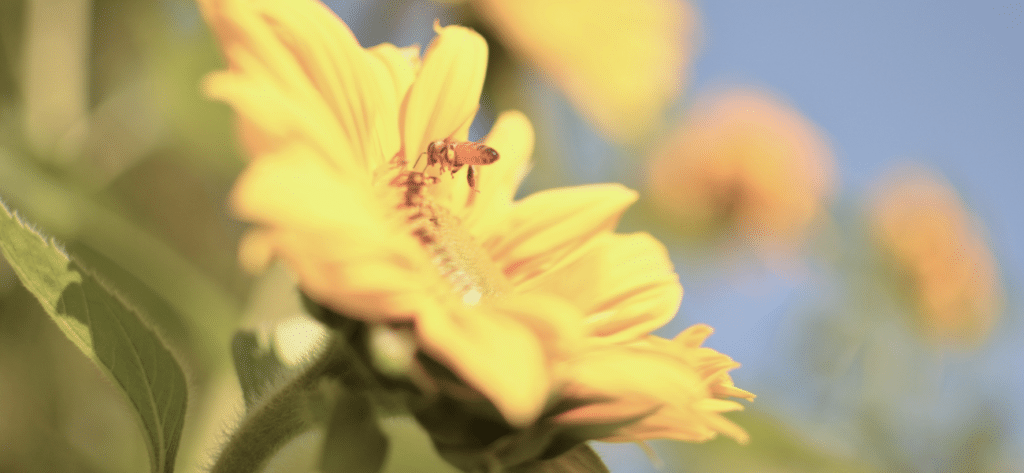
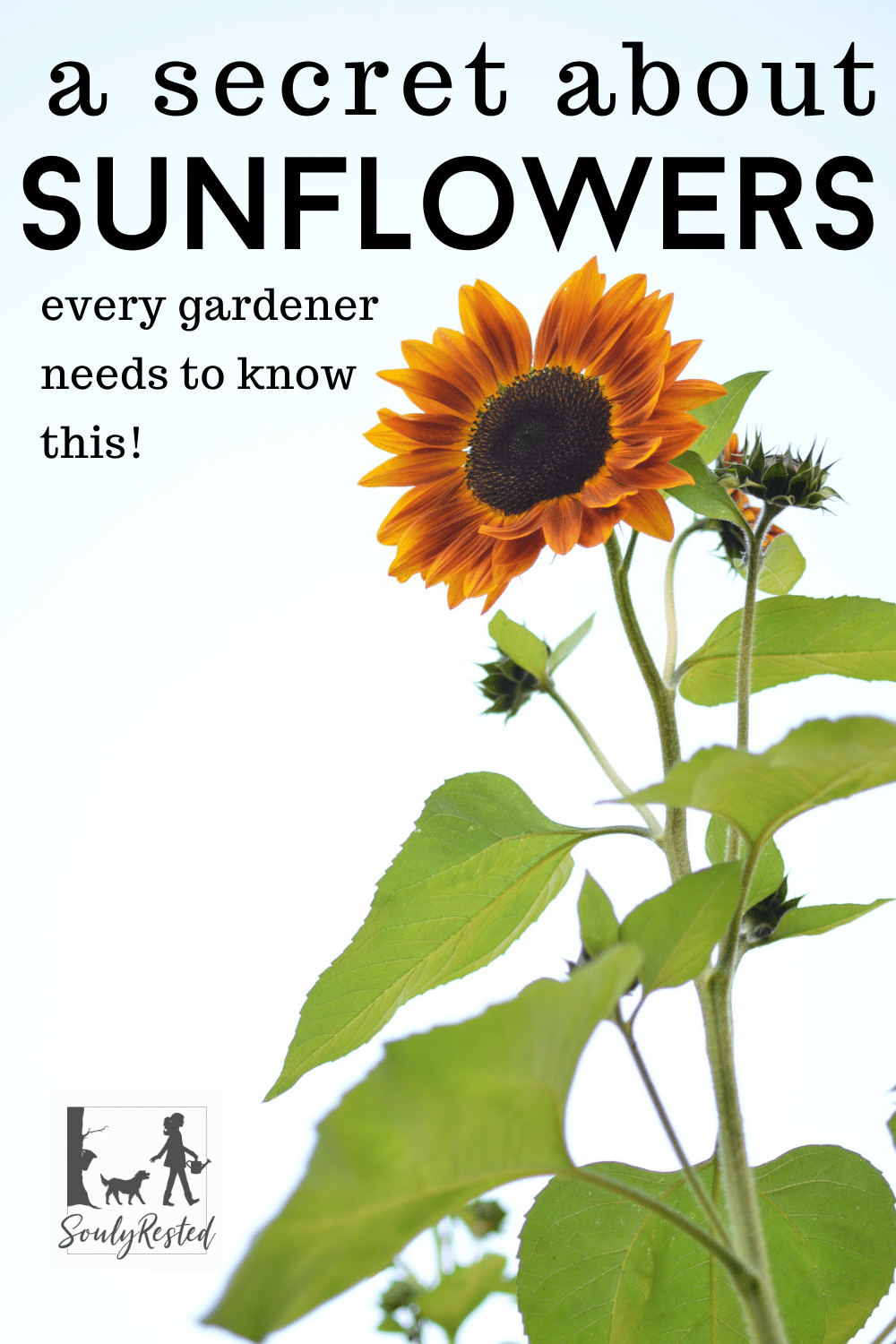





There so much fun to grow with so many beautiful verities. Thanknyou for all the great information you give.
I agree… I grow a different variety of sunflower almost every year (in addition to my favorite standbys). And I’m so glad you’re here!
I just planted my sun flowers yesterday. I have my potato and corn nearby, but in grow bags so I’m sure they’ll be fine.
I planted sunflowers for the first time this year! I was just checking on them earlier and noticed a lot of pest nibbles. What’s the best way to compare pests without harming the plant? They’re still immature, no blooms yet if that matters.
Great information. Thank you!
Do you plant sunflowers?
IMHO, I hear just no frown that a sunflower can’t turn around!!! They just ooze happiness!! 🌻🌻🌻
YES! One cannot be uncheered by a sunflower… I think that’s how Pooh would say it atleast… 🙂